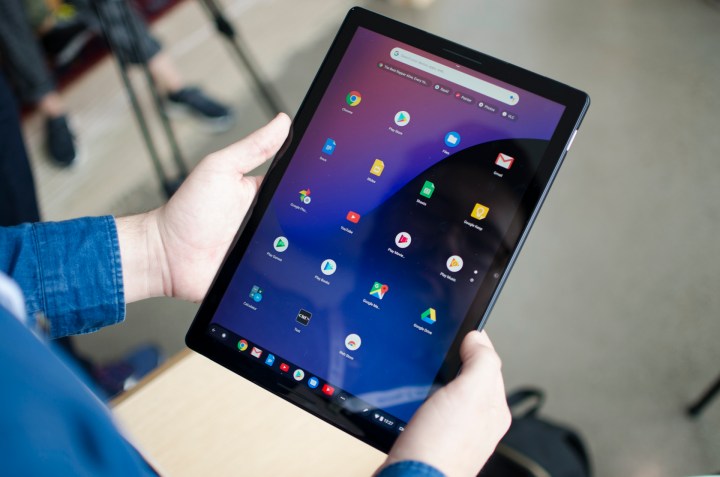
Some Chromebooks and the new Pixel Slate work good as tablets, but not every website reads nicely on the devices. That might soon change, as Google is apparently adding a tablet view option to Chrome OS, according to Android Police.
It is not clear when the tablet view option will be coming, but it is apparently a part of a “future release.” The feature involves adding a “request tablet site” toggle switch to Chrome OS, which means that you will be able to switch to a mobile version of a webpage whenever you want. Considering that the web is usually optimized for desktops, it would eliminate common touch browsing issues like having to deal with poor scrolling controls or scaling. This was hinted by Google’s senior product manager for Chrome OS, Kan Liu, in an interview with Android Police.
“In the upcoming release, we are also introducing ‘Request tablet site’ in Chrome on Pixel Slate, and with more and more touchscreen devices out there we fully expect the web to continue evolving to be more touch-friendly as well,” said Liu.
A version of this feature which lets mobile users switch to a desktop website is already present in Chrome on Android and iOS mobile devices. That considered, it is nice to see that Google is porting over a reverse option to Chrome OS. It might not improve loading times, but it would make the overall touch experience more intuitive and friendly. That was something we were hoping for, especially since we found that the Google Pixel Slate feels more like an Android tablet than ever before.
Though “future release” doesn’t give a timeframe for when the feature can be made public, the recent release of the Google Pixel Slate tablet hints it might as well be coming soon. Previously, we have also seen Google improve on areas of Chrome OS in the weeks ahead of the Pixel Slate reveal. The recent Chrome OS 70 update introduced a new interface which centers the system taskbar and makes app icons larger for easier access via touch. It also introduced a new touch-friendly compact keyboard, similar to Gboard on Android.
Editors' Recommendations
- Google Chrome gets one of Microsoft Edge’s best features
- How ChromeOS Flex turns old PCs into Chromebooks for free
- Chromebook gaming could get serious with rumored Nvidia GPUs on the way
- Chrome OS to soon run everywhere, including on PCs and Macs
- Apple’s VR headset could get these surprise iOS features

